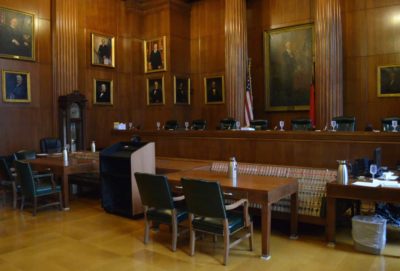

We early Baby Boomers made our journey through elementary, middle, and high school during the 1950s and ’60s. Our education took place in the context of the civil rights movement and the Cold War, as well as the race to space between the United States and the Soviet Union.
The mobilization to compete in weaponry and rocketry impelled American schools to deliver heavier doses of math and science as a foundation for strengthening the nation’s technological prowess. In my senior year of high school, for example, I had a daily 2 ½-hour combined calculus-physics course.
(A memory anecdote from the space-race mobilization proclaimed by President Kennedy: In the summer of 1969, on an assignment as a newspaper intern in Washington, I stood under the Wright Brothers’ airplane in the Smithsonian to interview visitors on the day that two Americans became the first men to walk on the moon.)
Now, a half century later, the younger cohort of Generation Z fills the nation’s schools in a different, yet no less fraught time. The break-the-norms Trump presidency, the insurrection at the U.S. Capitol, the Russian invasion of Ukraine, the rise of autocracies abroad, and polarization at home combine to elevate the future of democracy itself as a front-burner issue.
The temper of the times calls for renewed and careful consideration of the roles, responsibilities, and purposes of public education. Schools provide both individual uplift and societal enrichment; they are integral to the infrastructure of private and public institutions that offer opportunity in a capitalist and democratic society. It’s useful to examine the purposes of public schools in three broad categories.
- Especially in the South, policymakers, advocates and commentators have found economic necessity their strongest argument for bolstering public education. The economic case appeals to business influential and crosses partisan lines — and data support it.
Using 2019 data, the U.S. Bureau of Labor Statistics calculates media weekly earnings of $1,248 for adults with a bachelor’s degree, $887 for holders of associate degrees and $746 for high school graduates with no further education. “Each level of education you complete,” says the BLS, “may help you develop more skills, give you access to higher paying occupations, and signal that you’re able to follow through on important tasks, such as planning ahead and meeting deadlines, that employers value.”
In North Carolina, better schools have long served as a key component of developing a more diverse economy with high-paying jobs. As it emerges from the disruption of the COVID-19 pandemic, the state pursues an adopted goal of 2 million adults, ages 25 to 44, with a college degree or work-related credential by 2030. - Americans, of course, live their lives in many dimensions, not limited to their work-for-pay. They are parents, consumers, neighbors, sports fans, readers, and worshipers. They also bring their education to bear in the communities where they live.
Education empowers people to take better care of their health, to become knowledgeable purchasers of consumer products, and, building upon the love of parents for children, to make informed choices in parenting. Education also imbues people with a deeper appreciation for listening to, looking at, and delving into works of art on paper, screen, and digital device.
By forming whole persons who act ethically, who think critically, and who build communities, schools serve not only individuals but also the nation, the states, and counties. - Just as the modern economy needs flexible thinkers and problem solvers as entrepreneurs, researchers, and workers, so American public life needs flexible thinkers and problem solvers capable of analyzing information and exercising judgment during elections and debates on public issues. A simple internet search turns up an outpouring of quotations from the Founding Fathers, the originators of the public school movement, civil rights advocates, scholars, judges, and presidents, all driving the essential point that an educated populace is a fundamental foundation stone of self-government.
Over more than two centuries, American schools have been key instruments for “Americanizing” waves of immigrants. Schools bring into a common place young people from different families, from different races and economic classes.
Schools responded to industrialization and to the space race of the mid-20th Century with an emphasis on science and math. This contentious moment with the health of democracy at issue requires young Americans to receive a robust and comprehensive education in the humanities of history, civics, and literature. After all, it is among the high purposes of schools to inculcate citizenship and forge e pluribus unum.




